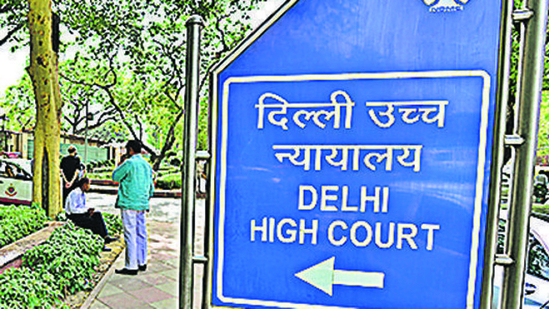Delhi HC rewrites rules on smartphone access in schools
This article is authored by Debargha Roy, research fellow, Vidhi Centre for Legal Policy and managing trustee, Project Saathi, New Delhi.
The debate around children's access to technology has long been polarised between two extreme positions. On one side stands the paternalistic approach that advocates for blanket bans on technology for children below certain ages—a stance that denies young people's capacity to make informed decisions about their digital lives. On the other side emerges a more nuanced perspective that acknowledges both the reality of technology's integration into modern life and children's agency in navigating digital spaces.

A recent Delhi High Court (HC) judgment has made a timely intervention in this discourse, offering a balanced framework that could serve as a model for addressing children's technology use nationwide.
On February 28, 2025, Justice Anup Jairam Bhambhani delivered a significant order concerning smartphone use in schools, asserting that a complete ban would be "both an undesirable and unworkable approach." The ruling acknowledges the beneficial aspects of students having access to smartphones while recognising that unrestricted use can prove "deleterious and harmful" to their development and education.
The court's approach stands in stark contrast to earlier directives from educational authorities that often leaned toward complete prohibition. The 2023 circular from the Directorate of Education, Government of NCT Delhi, for instance, "strongly opposes mobile phones in schools" with minimal guidance beyond instructing that "mobile phones should strictly not be allowed in the classrooms."
Rather than endorsing such simplistic prohibitions, Justice Bhambhani outlined nine thoughtful principles to guide schools in developing balanced policies:
· Smartphones should be regulated and monitored rather than outright banned
· When feasible, students should deposit smartphones for safekeeping during school hours
· Classroom use should be restricted to prevent disruption of learning
· Schools must educate students about ethical technology use and potential harms
· Smartphone access should prioritise safety and coordination rather than entertainment
· Policy development should include input from educators, experts, and parents
· Schools need discretion to implement policies suitable for their unique circumstances
· Disciplinary measures should be transparent, consistent, and proportionate
· Given rapid technological advancement, policies require regular review and revision
This framework recognises the inescapable role of technology in children's lives while establishing reasonable boundaries and safeguards. It acknowledges children as active participants in their digital education rather than passive subjects of adult protection.
The court's approach aligns with India's obligations as a signatory to the UN Convention on the Rights of the Child (UNCRC), which India ratified in 1992. The Convention establishes the "best interests of the child" as a fundamental guiding principle for all legal, administrative, and policy decisions affecting children. This principle is enshrined in Article 3 of the UNCRC, which states that "in all actions concerning children... the best interests of the child shall be a primary consideration."
India has repeatedly affirmed its commitment to this principle through various legislative and policy measures, including the Protection of Children from Sexual Offences Act, 2012, the Juvenile Justice (Care and Protection of Children) Act, 2015, and the National Policy for Children, 2013. The Supreme Court has also recognised this principle in numerous judgments as having constitutional significance.
However, implementing the best interests principle requires nuanced understanding of children's evolving capacities and changing social contexts. In today's digital age, these best interests cannot be served through prohibition alone but must balance protection with empowerment and education. The Delhi HC judgment represents a sophisticated application of this principle that recognises digital literacy as being in children's best interests—acknowledging that complete technology deprivation may ultimately harm rather than help young people preparing for life in a digital world.
By rejecting a one-size-fits-all approach, the Delhi HC has implicitly endorsed another key UNCRC principle—children's right to participate in decisions affecting their lives, including their digital lives. Article 12 of the UNCRC recognises that children capable of forming views have the right to express those views freely in matters affecting them. The graded approach to technology regulation respects this participatory right while still providing appropriate guidance and protection.
The Delhi HC judgment offers a valuable template for how we might approach children's relationship with technology more broadly. It reminds us that effective regulation requires nuance, flexibility, and a commitment to children's agency. This balanced perspective arrives at a critical juncture, as India navigates the implementation of the Digital Personal Data Protection Act and its accompanying Rules.
Rather than treating all children as lacking capacity to make decisions about their data, a graded approach that recognises developing capabilities and provides appropriate safeguards would better serve children's best interests. This would require moving beyond binary age-based restrictions toward more sophisticated mechanisms that balance protection with empowerment.
As we develop frameworks for children's engagement with technology—whether in schools, online platforms, or data protection regimes—we would do well to follow this balanced path. The future of digital citizenship depends not on keeping children away from technology but on equipping them to use it wisely and well.
This judgment should prompt lawmakers to reconsider approaches that rely primarily on restriction and to develop more sophisticated regulatory frameworks that recognise children as rights-holders with evolving capacities. Only then can we truly fulfill our commitment to serving children's best interests in the digital age.
This article is authored by Debargha Roy, research fellow, Vidhi Centre for Legal Policy and managing trustee, Project Saathi, New Delhi.
All Access.
One Subscription.
Get 360° coverage—from daily headlines
to 100 year archives.



HT App & Website







